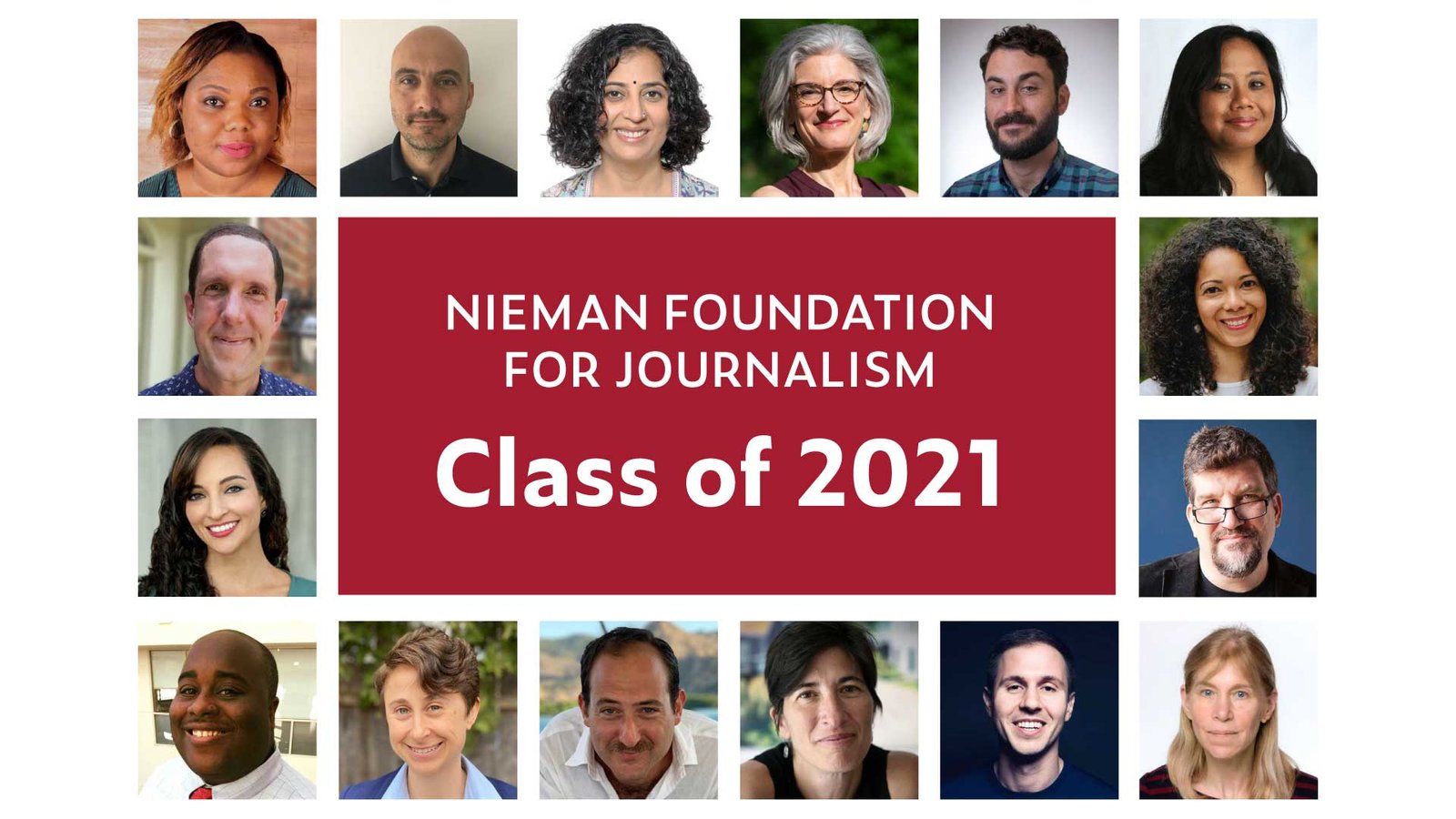
The coronavirus pandemic and the movement for racial justice present American society—and American newsrooms—with urgent challenges and opportunities for change. In response, the Nieman Foundation for Journalism at Harvard University is dedicating its next round of Visiting Fellowships to journalism projects that address these dual challenges.
For one year beginning this fall, Nieman will offer remote Visiting Fellowships in support of projects that advance racial justice and public health journalism in the U.S. This special initiative will provide targeted research opportunities and specialized training to individuals with concrete and innovative ideas supporting one or more of the following goals:
- Advance the representation of journalists of color throughout the news industry
- Improve coverage of underreported stories and communities
- Explain the impact of coronavirus on an area or group
- Enhance reporting expertise and coverage of public health in a community
Visiting Fellows will work remotely but be in regular contact with Nieman staff, Harvard experts, and members of Nieman’s vast alumni network, who can serve as advisers. Fellows may utilize the extensive resources at Harvard University, including scholars, research centers and libraries, either in developing a project that can be completed during the visiting fellowship or as part of a larger undertaking that continues after the fellowship period ends. Visiting Fellows will also be invited to digitally attend relevant programs organized for members of the yearlong Nieman Fellows class of 2021.
Those selected for the Visiting Fellowship may also request specialized training for their newsrooms and/or project-related funding that can be used to develop, launch or expand an initiative around newsroom representation or public health journalism.
Visiting Fellows are expected to share their progress and findings either through publication on one of Nieman’s websites—Nieman Reports, Nieman Journalism Lab, and Nieman Storyboard—or in another medium better suited to the project.
Those who should consider applying include journalists, publishers, technologists, entrepreneurs, programmers, designers, media analysts, academics and others who want to make an impact on journalism. There is no age limit or academic prerequisites and a college degree is not required.
The fellowship is open to the broadest range of journalists, from those with legacy affiliations to those who work independently. We are especially interested in applicants from community media (including but not limited to Black, Latino, Asian and Indigenous news outlets) and anyone who works to serve communities that are underrepresented in media.
Applicants will not be expected to take a leave of absence from their organizations if awarded a Visiting Fellowship. Those who intend to continue their work within a news organization must request a letter of support from their supervisor, which should state the intent of the news organization to permit the applicant to work on the project for the duration of the fellowship period.
Freelance applicants and academics are not required to have a letter of support but should indicate potential partner organizations for any publishing or other actionable component of their project.
Fellowship Duration & Application
A rolling application process is open now through the application deadline of September 25. Nieman may begin selecting some fellows prior to the September application deadline.
Visiting Fellowship applicants should list their preferred start date and the number of weeks requested, which should not exceed 20. The Nieman Foundation will work with selected fellows to determine a start date. The duration of the fellowship awarded may be shorter than the number of weeks requested.
Applicants will be required to provide a short (no more than 600 words) proposal.
Financial Support
Nieman will support the fellows with a weekly stipend of $2,000, which will be paid monthly. If an employer chooses to keep the fellow on salary during the fellowship, Nieman will offer all the same research and potential training support, but a stipend will not be provided.
Potential newsroom training and project-related funding will be determined on a case-by-case basis. To be considered for these opportunities, applicants should prepare a brief overview of the requested training and/or a budget outlining project-related funding needs. (Training could include a spectrum of journalistic skills, from data mining to narrative writing.)
Applicants for this fellowship must be approved for work in the U.S.
Frequently Asked Questions
When will these fellowships take place?
When will selection decisions be made?
Will any additional project-related funding be available?
Will group projects be considered?
Are Nieman alumni eligible for these targeted Visiting Nieman Fellowships?
If selected for a designated Nieman Visiting Fellowship, could I apply for the academic-year Nieman Fellowship in the future?
May I reapply if I was not awarded a fellowship previously?
If I miss the application deadline, may I submit a late application?
May I apply for both the short-term fellowship and an academic-year fellowship in the same year?
I still have a question. Who should I contact?
Project Examples
Although this year’s visiting fellowships are targeted toward public health and racial justice, it might be helpful to read about some previous visiting fellows at Nieman and how they crafted project work at Harvard to advance journalism.
Mark Frankel, 2018
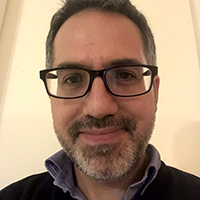
Project: To research how journalists can best uncover and report on stories sourced from audiences on “dark social” apps, message boards and other private, invitation-only platforms.
Result: Read Mark’s full report of his findings “Journalists have an ‘open invitation’ to an interesting and under-used beat. How should they use it?” or this abridged version, “The promises and pitfalls of reporting within chat apps and other semi-open platforms: A journalist’s guide,” in Nieman Lab.
Shaheen Pasha, 2018
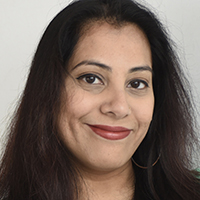
Project: To research prison education programs, with the goal of creating an immersive teaching and reporting model for university journalism programs to partner with prisons in creating journalism curriculum for inmates.
Result: Progress toward the creation of a guidebook to help other programs and individuals interested in doing immersive journalism education in prisons. Learn more about the pilot program co-led by Shaheen: “Journalism students take mass incarceration course in Hampshire County Jail.”
Trushar Barot, 2017
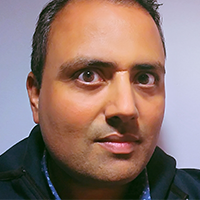
Project: To research the rise of audio AI assistants and their role in helping news audiences—especially those new to the internet—find quality, relevant and timely content.
Result: Convening of an industry forum of key individuals working in voice AI across news organizations and tech companies to share best practices and foster a collaborative industry conversation. Read Trushar’s report “The future of news is humans talking to machines” in Nieman Lab.
Paul McNally, 2016
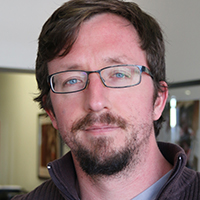
Project: To develop an online tool to organize citizen journalism in South Africa into a network for investigative reporting.
Result: Development of training methods and approaches to fundraising that Paul oversaw as founding director of The Citizen Justice Network, a nonprofit in South Africa that develops and promotes citizen journalism in radio. In 2017, Paul co-founded Volume, a platform that enables community radio stations in Africa to produce better local news and increase advertising revenue through a suite of products aimed at those services. Read more about Volume News, one of the Volume suite of products, in “Do we even need local news?” Also see “In South Africa, community radio stations — lifelines for local news in rural areas — can get a boost with Volume” in Nieman Lab and “Paul McNally, a 2016 Knight Visiting Nieman Fellow, is working to bring community radio in South Africa to a wider audience” in Nieman Reports.
Tara Pixley, 2016
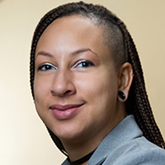
Project: To identify structural challenges to finding and accessing images from photojournalists outside the Western media network. To create a platform to showcase quality global photojournalism and provide news photo editors with diverse, fresh perspectives that depict non-Western people and places.
Result: In 2017, Tara co-founded Reclaim Photo, an alliance of organizations working to promote diversity in photojournalism. Learn more about Reclaim Photo and its efforts to survey photojournalists worldwide to examine issues of class, ethnicity, gender, race and sexual orientation in photography in “Seeking action – not just talk – about diversity in photojournalism” and in “Why we need more visual journalists and editors of color” in Nieman Reports.
Paul Salopek, 2012
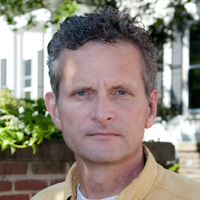
Project: To plan the epic Out of Eden reporting walk around the globe to trace the path of human migration and use storytelling and technology to test a new form of “slow journalism.”
Result: In January 2013, Paul embarked on his narrative trek, building ongoing collaborations with several centers across Harvard and MIT to facilitate audience engagement with the walk, such as developing educational materials for classrooms. Learn more about Paul’s insights on the impact of his fellowship experience, his preparations for the journey, and how the work of Out of Eden continues to grow and evolve. Also read “30 million footsteps” in The Harvard Gazette.
For more information please open this link
https://nieman.harvard.edu/fellowships/nieman-visiting-fellowships/

